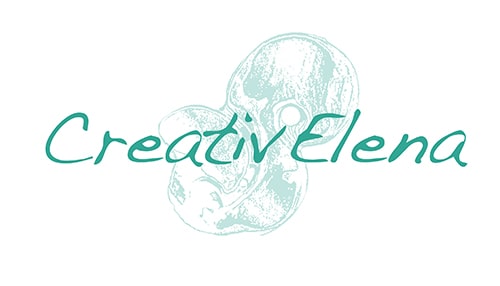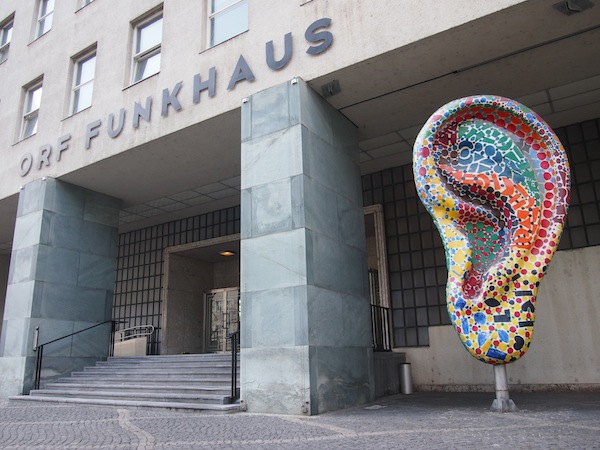Ingrid Brodnig (Falter Magazines). Helge Fahrnberger (Blog). Axel Maireder (Vienna University). Florian Skrabal (Digital Dossier). Dieter Zirnig (Political Blog at neuwal.com). Top Austrian media representatives & opinion leaders have gathered at the ORF Radio Kultur Haus for a status quo discussion on the nation’s so-called “blogosphere“. The Austrian news agency APA-OTS provides live tweets at #otsconnect, re-tweeting what people have to say about the event. The fact that I have more than two dozen new followers on @Creativelena within only one morning shows that the topic is hot.
I did raise my hand for “us travel bloggers“, by the way. Have a look.
As part of the discussion revolving around a blog’s financing structure, travel & fashion bloggers are first only associated with the words “shameful” and “problem”.
This sentence hits a nerve: Away from the polemics around dubious hotel testers and “travel freebie”-gathering bloggers, I just had to speak up and raise our professional point of view, demonstrated by years of successful and sustainable (long-term) cooperation between digital opinion leaders & the Austrian tourism industry. But: Journalism, be it in the form of print media or through blogs, do not mix with so-called “brand ambassadors“, Ingrid Brodnig argues. She would rather define successful bloggers as providing “added value in terms of professional standing. If you are able to do your research to a point where you become THE leading expert in your field, or are able to get job offers through your network, then you have truly achieved an important goal.”
And in the beginning, there was … enthusiasm. Also, dear bloggers: Be aware of what you publish where, how and to whom.
Get it? I keep taking notes over notes of what our digital expert panel have to say (yes, with a real pen on a true sheet of paper! The physical sensation of touch sometimes is a nice one indeed 😉 ). And so it goes: “Anybody is able to blog today”, Helge Fahrnberger raises the issue of getting started. Wordpress is god-like, establishing your own Wordpress website “takes three minutes and is REALLY SIMPLE. It is all the more important, therefore, to define your target groups, check your content for quality, deal with search engine optimisation and think about how to distribute and share your messages.”
Ingrid Brodnig takes this a step further and talks about what makes great blogs. Good bloggers are “personalities, they have a clear voice and mission. They are brands.” Florian Skrabal hints at the difference between presenting facts versus emotions; for him, authenticity & honesty are the most important goals to achieve – especially or above all, towards the reader.

The experts who have come to discuss the Austrian “blogosphere” © APA-Fotoservice/Preiss – from left to right: Alexander Raffeiner (Moderator), Florian Skrabal (dossier.at), Ingrid Brodnig (Falter), Dieter Zirnig (neuwal.com – political blog), Helge Fahrnberger (Helge Fahrnberger Blog) und Axel Maireder (Vienna University).

Listening in at the APA-OTS connect workshop: Lots of media & PR representatives have gathered here in order to join the discussion about the nation’s status quo on blogs – their influence, their ways, their key criteria.
Blogs are special interest media. In the US, they have already turned into highly professional mass media. The Austrian blogosphere, meanwhile, is dominated by politics, followed by fashion & food.
Well. At least, my travel blog category talking about “Gourmet Travel” earns a certain standing around here, then. 😉
“Blogs aim at reaching a different kind of audience”, Ingrid Brodnig continues in her engaging way, “they lead into areas of expertise and niches. I believe in the value of link building as real added value to readers, as relevant information becomes easier to find and more transparent, too.” Part of the bigger picture, “blogs are another element of our modern-day information society, however marked by the ‘phenomenon of nervous fingers’ short attention-spans among readers”. New role models are called for in today’s professional environment: Digital, Content or even “Listening Managers”!
(“Listening Manager” sounds really good. I believe each family and friendship needs one, too. Perhaps we shall all write blogs about the “art of listening” soon?)
“When you’ve found a good blog, you don’t need Google any more.”
Word at the APA-OTS connect discussion. A good blog offers readers such a good network of information that they stay “forever” in its well-linked microcosm. And Google loves blogs! Everyone uses blogs, at least subconsciously when researching the web, as for long content & quality have become king over a website’s format.

Discussion brought about by interesting questions and remarks from the audience make for a really good workshop session. Thank you, dear team at APA-OTS, for organising!
Everywhere where media cooperations, the selling or articles / sponsorship or support in your research have taken place, it is absolutely necessary to provide readers with a disclaimer. Among German-speaking travel bloggers, we have long adhered to the so-called Reiseblogger Kodex: Check out this website for more information.
To be (or not to be) independent is your own, individual decision and responsibility as an author and blogger, once again especially towards your readers. “During my entire career as a blogger, I never ever had one single negative comment, or indeed any comment, about the fact of disclaiming partner support on a trip. On the opposite, the enthusiasm and encouraging words of the community speak of no issues at all. This is something I am really proud of!” Ulrike Rauch-Keschmann, PR manager of the Austrian National Tourist Board, Karin Thiller, managing director of APA-OTS and charming fellow blogger Patrick Löwenstein from Vienna nod at me in agreement. Thank you all so much for coming! I really look forward to many more interesting workshop sessions and networking talks about the Austrian blogosphere.





2 comments
Thanks for this insight into the blogging world in Austria. It really is a shame that the words shameful and problem come to mind there when working with bloggers though. Maybe the people at the conference had worked with all the wrong bloggers! As a journalist I’ve certainly heard of journalists causing problems and being out for free trips (with no intention of writing anything). This is not good for anyone involved. But I don’t think its a problem that can be associated just with bloggers. The key to it is to work with the right people at all times and bloggers need to be clear about what they are offering brands and to deliver.
Dear Sarah,
I fully understand and underline what you are saying. Black sheep exist everywhere, and it is important not to associate problem situations just with “new media people” and bloggers. There have been cases around here, too, where journalists would not work according to journalistic criteria and guidelines and leave both parties in an agreement unsatisfied and hesitant to continue.
The key, as always, is exactly what you say: Finding the right people to work with at all times and being clear about what it is that you offer and that you want. Only being outspoken in this sense has the power to move everybody forward – in the best way, through a mutually beneficial partnership that sets a best practice example in the industry.